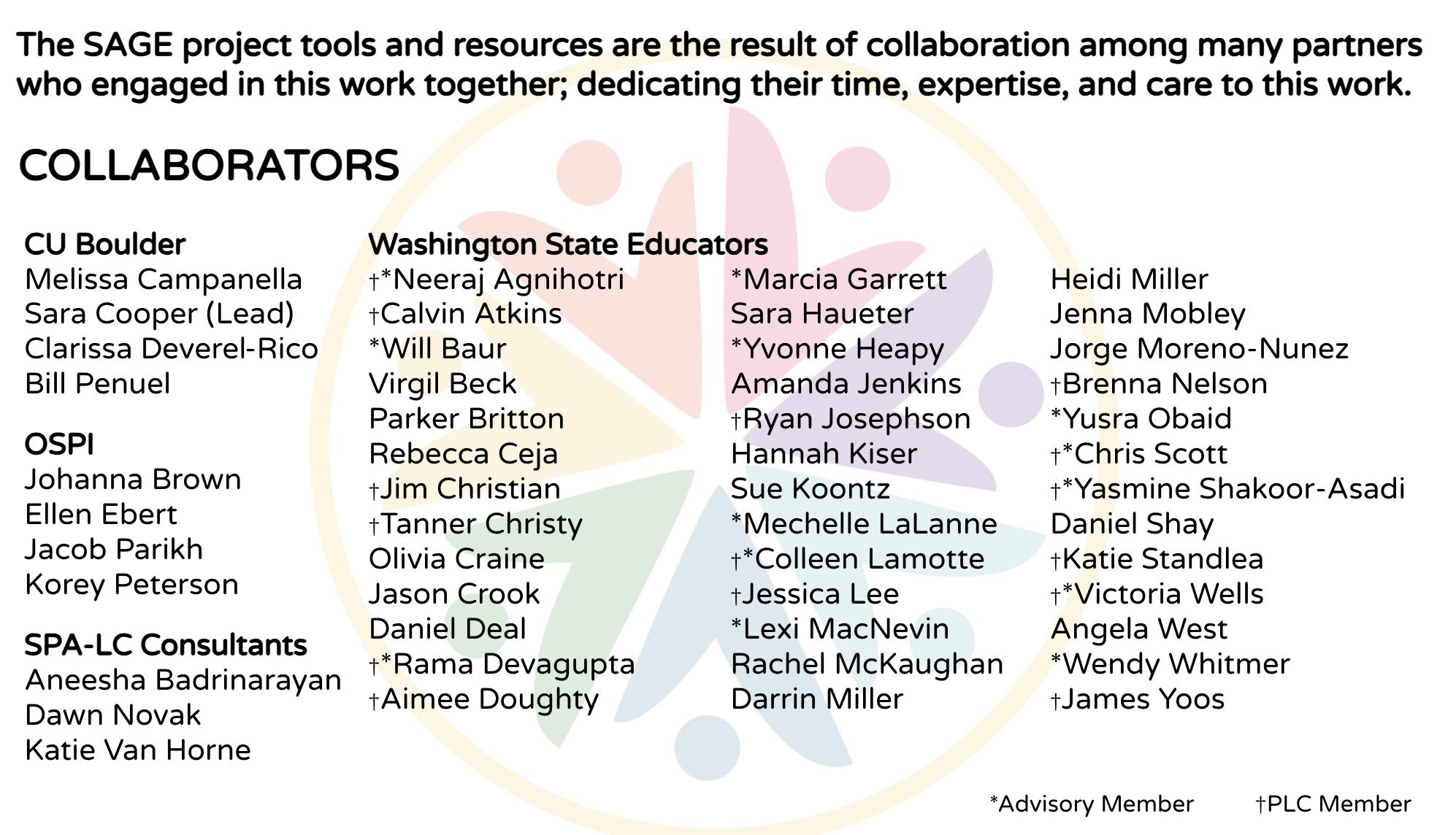Washington State’s SAGE Project
(Science Assessment Grounded in Equity)
The SAGE project is a collaboration between the Washington Office of Superintendent of Public Instruction and the University of Colorado Boulder’s iHub group. Washington is a member of the State Performance Assessment Learning Community.
It all began with a vision for equity.
We’ve all seen efforts to make “equitable assessments”—and we’ve also seen that in most cases, students still experience those assessments as judging, labeling, demoralizing experiences. What if the mark of an equitable assessment were that students got actionable feedback in ways that motivated them to keep engaging and learning?
What if assessment were a caring practice?
Approaching assessment as a process for building relationships, honoring student experiences and identities, and surfacing assets to celebrate and build upon can transform how our learners experience science in our classrooms.
Every conversation, process, and final product in the work highlighted here centers the question, “How can assessments that center learners’ experiences support more meaningful science learning for all, especially those learners who are owed an educational debt?”
The teams who created this work practiced a culture of caring for one another throughout the process and we know that as a result of being together, none of us will ever be the same. We are excited to share the frameworks, processes, and tools that transformed assessment in our schools and classrooms, and hope they can help do the same for you.
Welcome to SAGE!
Getting Started
Tools and resources that provide the foundation for an equitable, instructionally relevant assessment system. They provide principles for equitable assessments that support sensemaking about meaningful phenomena and problems.
Designing Short Assessments & Adapted Tasks
Design tools, resources, and examples of multiple types of assessments that fulfill our vision for equitable, instructionally-relevant assessments.
Using Assessments to Improve Teaching & Learning
Tools to support practices for implementing assessments and looking at learner artifacts in ways that attend to equity.
Changing Systems
Resources for communicating with interest holders outside the classroom about needed systems changes to fulfill a vision for Science Assessment Grounded in Equity.
Reports and Practice Briefs from the Project
Cooper, S., & Van Horne, K. (2023). Lessons Learned: Working with Instructionally Relevant Assessment Projects Focused on OpenSciEd. Boulder, CO and Seattle, WA: inquiryHub and Concolor Research.
Deverel-Rico, C. (2023). Washington’s Science Assessment Grounded in Equity (SAGE). Boulder, CO: inquiryHub.
This work was supported by a contract to CU Boulder from the Office of Superintendent of Public Instruction (OSPI) in Washington. Any opinions, findings, conclusions, or recommendations expressed in this material are those of the author(s) and do not necessarily reflect the views of OSPI.








